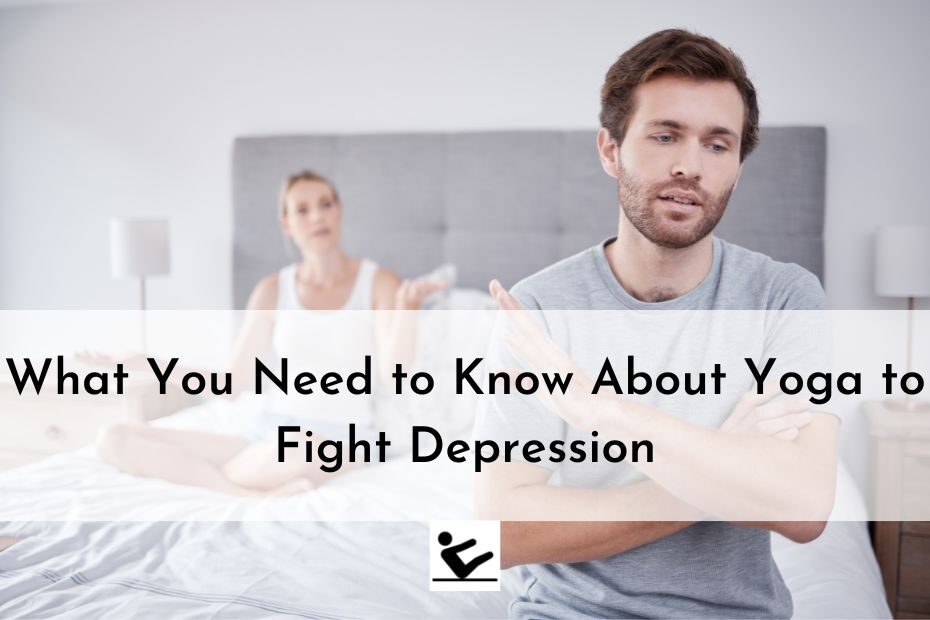Taking care of our minds should be a priority in all aspect of our life. Today, most individuals suffer from some kind of mental disease, and this problem is only becoming worse. Some people think it’s a way of life and are able to be managed without professional aid, while others insist on medicating and talking it out.
If you fall into the latter category, I have some bad news for you. Contrary to popular belief, it is NOT a lifestyle. You may want to see a doctor if your depression has persisted for a while.
But there is one area where you are correct. Mental health problems may be managed at home. Yoga may be a useful tool for easing the burden.
Benefits of Yoga Practice
If you don’t do yoga or haven’t heard of it, you must be living under a rock.
Stretching, deep breathing, and meditation are just a few of the physical, mental, and spiritual disciplines that make up yoga. Yoga was developed in ancient India as a way to calm and focus the mind.
Yoga is beneficial for individuals of all ages for many reasons, including physical and emotional wellness. This age-old technique may become an integral part of your therapy and hasten your recovery and healing whether you are unwell, have a chronic disease or condition, or are recuperating from surgery.
Yoga has several positive effects:
- Strengthens while stretching
- benefits cardiovascular health
- Increases the effectiveness of sleep
- Enhances one’s disposition
- Enhanced vitality
- reduces stress and anxiety
- Reduces discomfort in the arthritic joints
How exactly can practising yoga help with mental illness?
Sadly, many individuals nowadays are susceptible to depression. Multiple factors, including prior trauma and hormone imbalances, may contribute to this. More than 250 million people of all ages suffer from mental health problems including anxiety and depression, according to the World Health Organization (WHO).
It’s common knowledge that drugs may improve mental wellness. However, there are measures that may be taken to lessen the effects of mental illness. A good diet, regular exercise, and mindfulness practises like yoga and meditation may all help you overcome depression. Curios as to how this thing operates?
According to Ayurveda, an ancient Indian system of alternative medicine, we experience depression when the life force energy, which is responsible for joy, serenity, and vigour, is depleted in the body-mind system. When you combine exercise with meditation, your body is better able to cope with the effects of depression.
The body-mind link may be strengthened and enhanced, for example, via the use of regulated and concentrated physical motions. Meditation, on the other hand, aids with mental clarity by focusing attention on the here and now.
Boosts HRV and Reduces Anxiety
HRV, or heart rate variability, refers to the varying intervals between heartbeats. In layman’s terms, it’s your heart rate’s variability. Since the heart’s relaxation reaction is more prolonged than its stress response, yoga raises HRV. As a result, it’s a fantastic method for naturally alleviating stress.
When your HRV is high, it indicates that your body can handle stress quite well. It might also indicate that your body is doing well healing from stress.
Certain yoga positions, such as Child’s Pose (Shishuasana) and Bridge Pose (Setu Bandhasana), are designed to help alleviate mental health issues including stress and sadness.
Exerts Antidepressant Effects
Medication has many positive effects on mental health. For instance, in extreme cases, medication for depression may be prescribed by a doctor. Did you realise, however, that our bodies already contain everything we could ever need?
One of the three main neurotransmitters in the human body is GABA. Sleeplessness, worry, and low mood are all symptoms of insufficient GABA. Serotonin, GABA, and dopamine are just some of the happy hormones that get a boost after a yoga practise. Happiness and ease of mind are the results of this. In addition, all three of these neurotransmitters may be found in many drugs, including anxiolytics (an anti-anxiety drug) and antidepressants.
To combat your feelings of despair, try practising yoga postures like the Downward-Facing Dog (Adho Mukha Svanasana) and the Alternate Nostril Breathing Technique (Nadi Shodhan Pranayama).
Sleep deprivation has also been linked to emotional distress. In the yoga position known as Savasana, or “corpse posture,” practitioners lay on their backs and let their bodies drop into a state of deep relaxation. If you’re having trouble sleeping, try this.
Takeaway
Yoga has been demonstrated to alleviate stress, sadness, and anxiety in a number of scientific studies. It’s good for the body and the brain alike. Yoga is highly recommended for those who are dealing with chronic illnesses or are making a comeback after surgery. If you want to learn more, check out Smart Business Daily and Blog Stellar.
Yoga may refer to a wide variety of practices, since there are various schools of thought and traditions across the globe. Adjusting your stance to the difficulty you’ve selected won’t be difficult at all. Practicing yoga every day, even for a few minutes, and eating healthily may greatly improve your quality of life. Modifying your way of life in this way can help you cope with many types of mental illness.
| HomePage | yogbuddy |
| Yoga | Click here |
